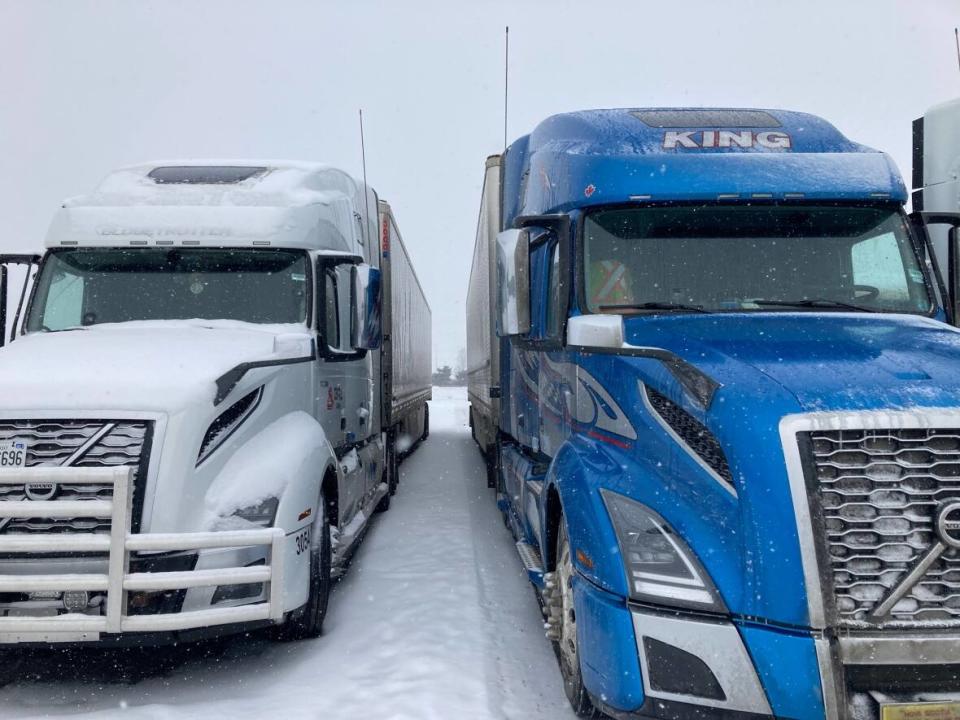Costs may be passed down to shoppers if fuel prices remain high: Trucking association

A trucking association says the industry is already feeling the impact of rising diesel costs — and so could consumers if the situation doesn't end soon.
Fuel prices have spiked the last few days all across Canada as crude oil continues to climb higher. The rising costs are having a ripple effect throughout the trucking industry, with truckers paying thousands of dollars to fill up their tanks.
Jean-Marc Picard, executive director of the Atlantic Provinces Trucking Association, told CBC's Island Morning on Tuesday the situation is "extremely tough to manage.
"It's a huge deal, obviously. It's our highest cost," he said.
"Even if you fill up in Quebec or New Brunswick or P.E.I., they're high everywhere, and there's no sign of it slowing down."
Picard said the industry is already struggling with rising costs for equipment, insurance and labour costs.
He said the fuel surcharge, which protects truckers against fluctuation in the gas price by distributing some of those added costs to customers, won't do much to soften the blow for a lot of carriers.
"Now they're taking a hit because the new fuel surcharge won't come out until the end of the week," he said. "They're always a week behind in any case. But this time, it's really got more impact."
Passing down costs
Picard said he's particularly worried about smaller operators who only have a couple of rigs out on the road at a given time.
"Those are the ones that concern me the most because if they fuel up today and it costs $2,000 to go to Montreal to deliver that load, they won't get paid for that load for probably 30 to 45 days," he said. "They have to be financially sound to carry those costs for a month or two.
"Any increase could really put some of them in a really fragile position or even in a position where, you know, they've got to park the trucks until things calm down. But everybody's so busy that you can't really do that, especially when we're all looking for drivers."
Picard said he hopes that the situation is short-lived for the sake of trucking companies as well as consumers, who could start seeing prices increase in the store shelves if the situation prolongs.
"If it lasts longer, we're going to see it for sure," he said. "Customers are not going to observe all those extra costs. They're going to have to pass it on."
"We already started to see price increases because the supply chain has been so tight the last year because of capacity, tightness, shortage of drivers. There's been a few events over the last year that created some challenges in the industry, this weather and things like that ... This is going to probably make it even more tight."

